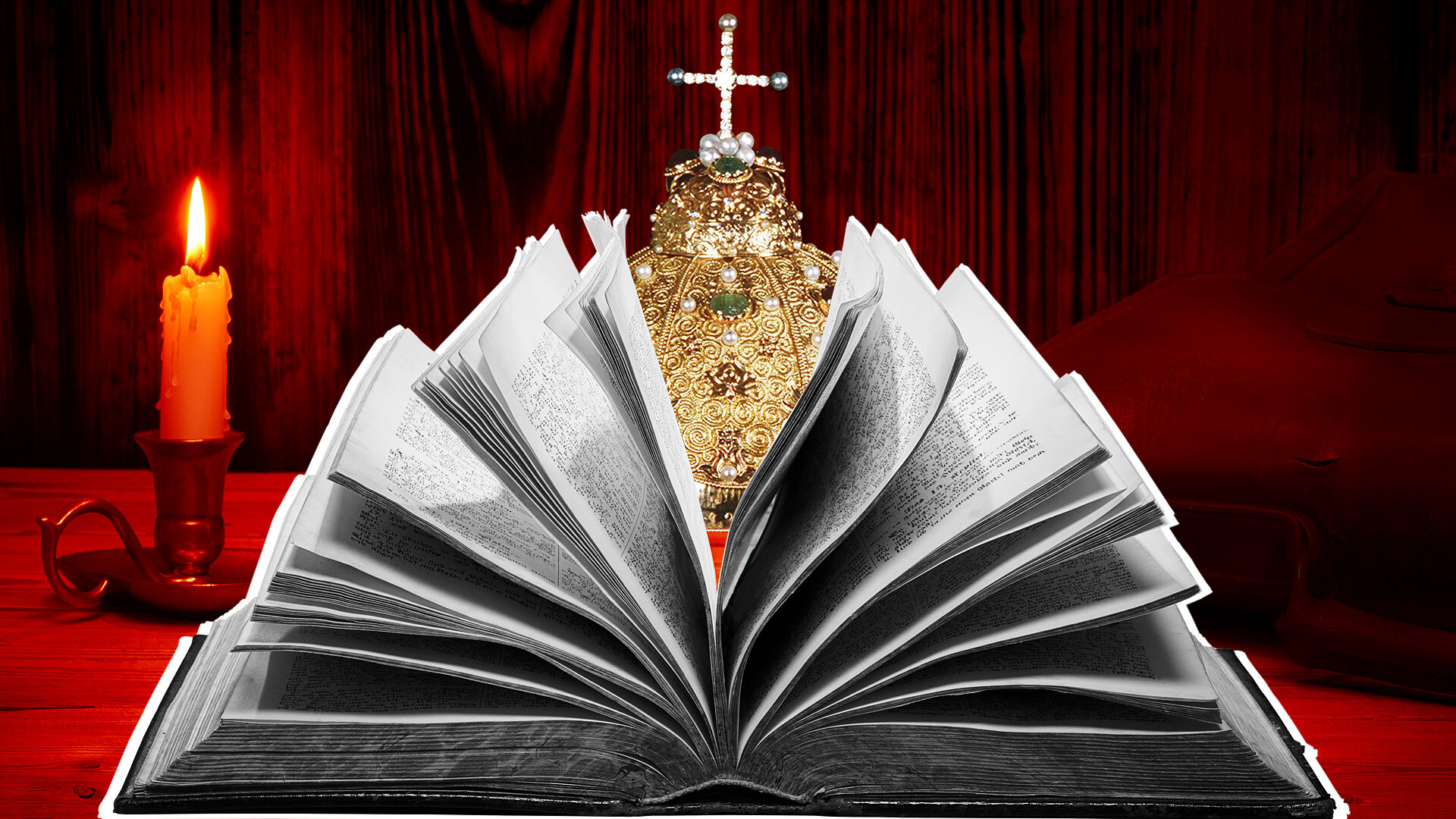
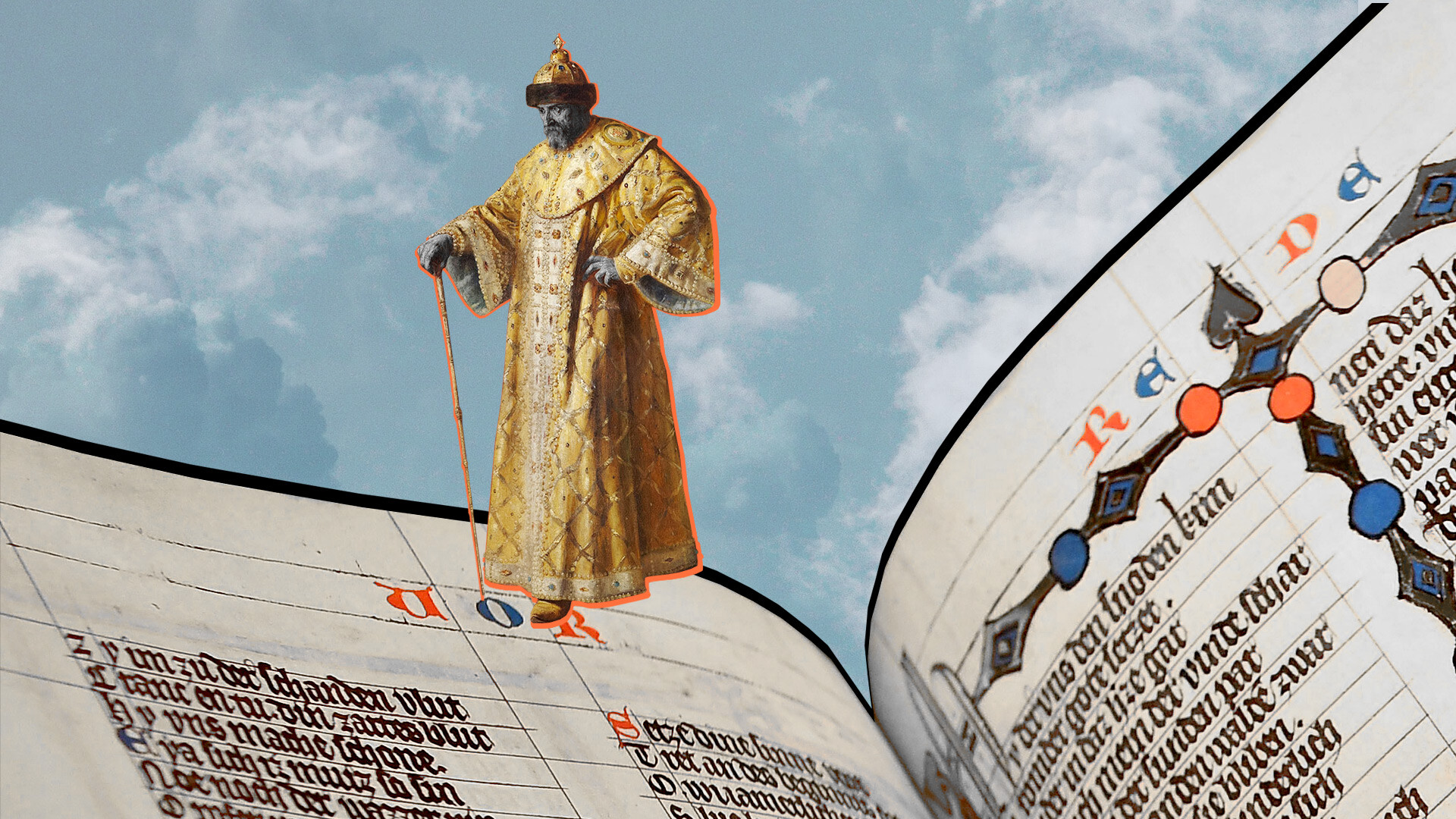
Ivan IV was known not only for his harsh disposition, but also for his library - one of the most extensive of the time. It is believed that it contained volumes that Sophia Palaiologina had brought from Constantinople, as well as manuscripts that had belonged to Yaroslav the Wise. And Ivan the Terrible himself replenished the library all the time. The Tsar preferred, inter alia, Roman authors - their works were translated for him. For example, the "History of Rome" by Livy and the Code of Justinian. He also liked the history of the Trojan War as told in "Chronographia" by Byzantine chronicler John Malalas, as well as the "Tale of the Creation and Captivity of Troy". Epic descriptions of the Trojan War made such an impression on Ivan the Terrible, that, in his correspondence with fugitive politician Andrey Kurbsky, he reproached the latter for not being honest with him, comparing him to Antenor and Aeneas.

Peter I collected his library with an eye to the interests of state: he commissioned translations of books on architecture, construction, engineering and military matters. The Russian Emperor was acquainted with a number of publishers and booksellers - for example, he visited the shop of Dutchman Jacques Desbordes. He bought three dozen volumes from him, including works on shipping and gardening and the history of trade. His book collection also reflected his passion for all things unusual: Peter I's library had a book by a German author about strange phenomena, from the bizarre appearance of people to the flight of comets. He also had the most detailed astrological calendar by the Dane Tycho Brahe, with the astronomer's personal notes.
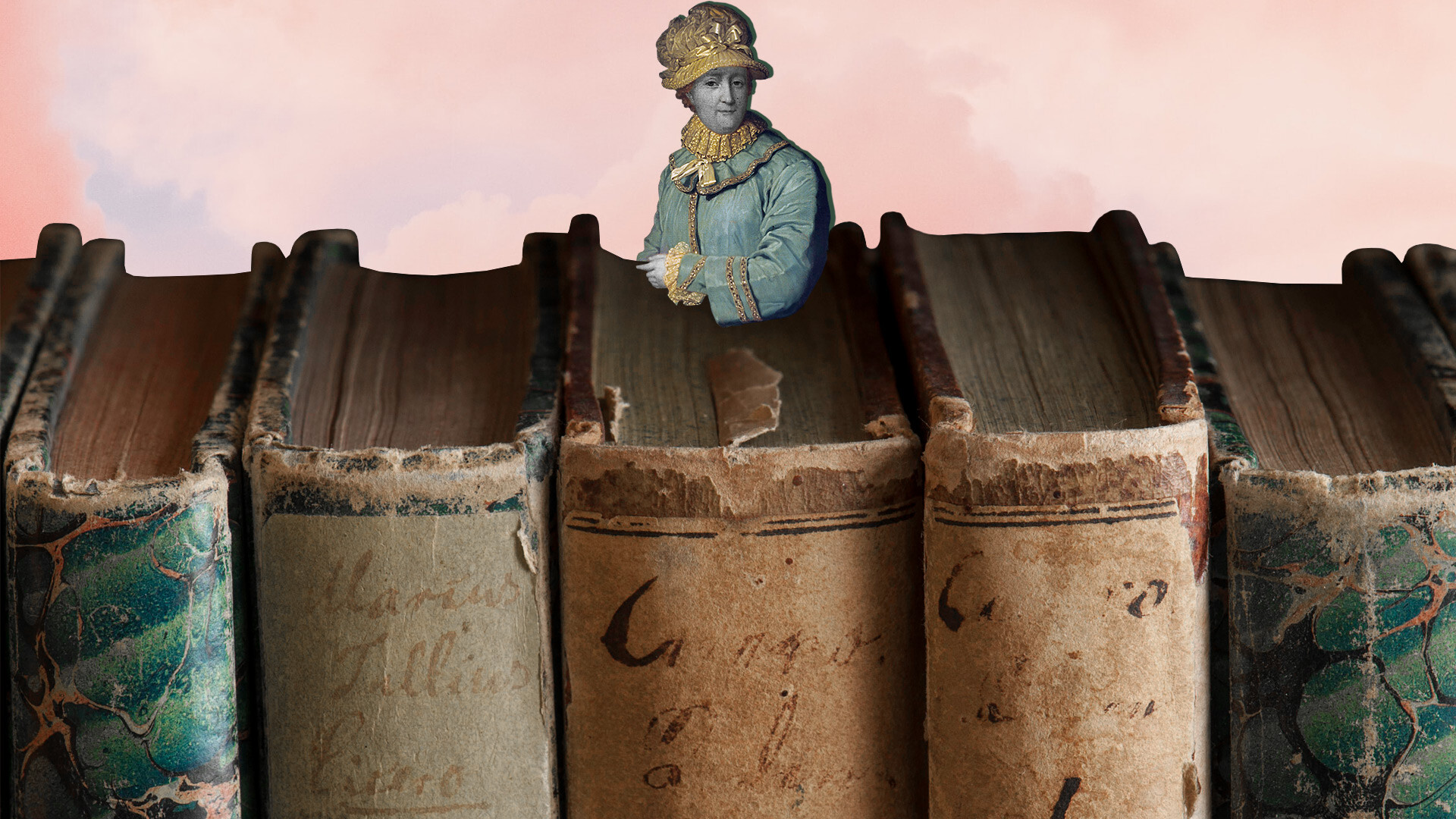
"For several years now, I have developed the habit of always having a book by my side. As soon as a convenient minute has presented itself, I start reading," admitted Catherine II.
She fell in love with books as a child, when she discovered Racine and La Fontaine. When she came to Russia, Princess Sophie Friederike Auguste von Anhalt-Zerbst prioritized reading as an essential pastime and for the rest of her life maintained the habit of devoting two hours in the morning and in the evening to books and writing. She was very picky. Rabelais, Montaigne and Cicero were in her field of interest. Page after page, she studied Père Joseph Barre's multi-volume "Histoire générale d'Allemagne", the "Encyclopédie" of Diderot and d'Alembert, and Montesquieu's "The Spirit of Law". Contemporaries admired Catherine's erudition: the Empress effortlessly quoted the writings of Classical philosophers, and knew the works of Lycurgus and Pericles by heart.
French thinkers were more than just a name on a book cover to her: She corresponded with Jean le Rond d'Alembert and even invited him to Russia as a tutor for Grand Duke Pavel Petrovich [the future Emperor Paul I]. She bought the library of Denis Diderot: the Empress paid the philosopher 15,000 livres, appointed him the keeper of the library and immediately ordered that he be paid his salary for 50 years in advance. The library was only moved to Russia after the death of the author of the "Encyclopédie".
But the Empress's main discovery was Voltaire. She was his devoted admirer and corresponded with him for many years. And after his death, she acquired her favorite author's library, and even planned to have a replica of Voltaire's château built for it at Tsarskoye Selo. although, in the end, she had the books deposited in her private apartments.
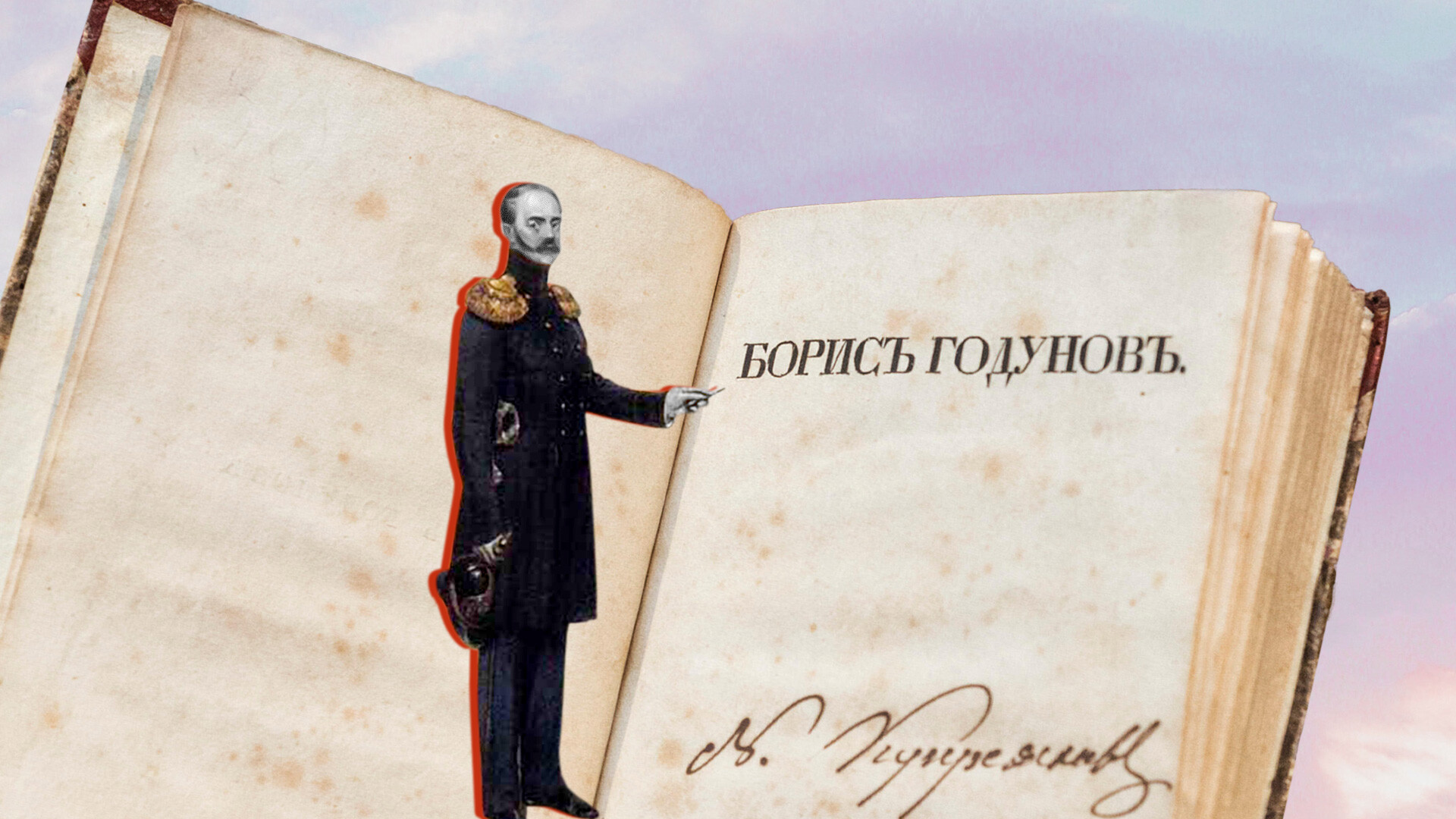
Nicholas I wasn't very keen on literature, but it was he who became the first reader and even censor of a great many of Alexander Pushkin's works. The poet himself held Nicholas I in much higher regard than his predecessor, the well-read and European-educated Alexander I.
"Tell His Majesty that I regret dying: I would have been utterly devoted to Him. Say that I wish him a long and extended reign, that I wish him happiness in his son, happiness in his Russia." These were the words the dying Pushkin asked Vasily Zhukovsky to convey to Nicholas I. In 1826 the Emperor had recalled the poet from Mikhaylovskoye, to which he had been exiled in the wake of the Decembrist Revolt, and granted him an audience, questioning him, inter alia, about the revolt. As they parted, the tsar announced that, henceforth, he would himself be the poet's first reader and censor. And Nicholas I did indeed study the poet's work closely from then on. For instance, he regarded "Count Nulin" as a "delightful play", and deleted a lot in "Boris Godunov", despite Pushkin's request to have it passed for publication in the author's original version.
Nicholas I also knew the author of "Dead Souls". Nikolai Gogol had already made a name for himself at court with his "Evenings on a Farm Near Dikanka" and, with time, developed the habit of submitting new work to the tsar’s family. The Emperor also gave permission for "The Government Inspector" to be staged in the theater, and even attended the opening night, subsequently ordering ministers to go and see the play.
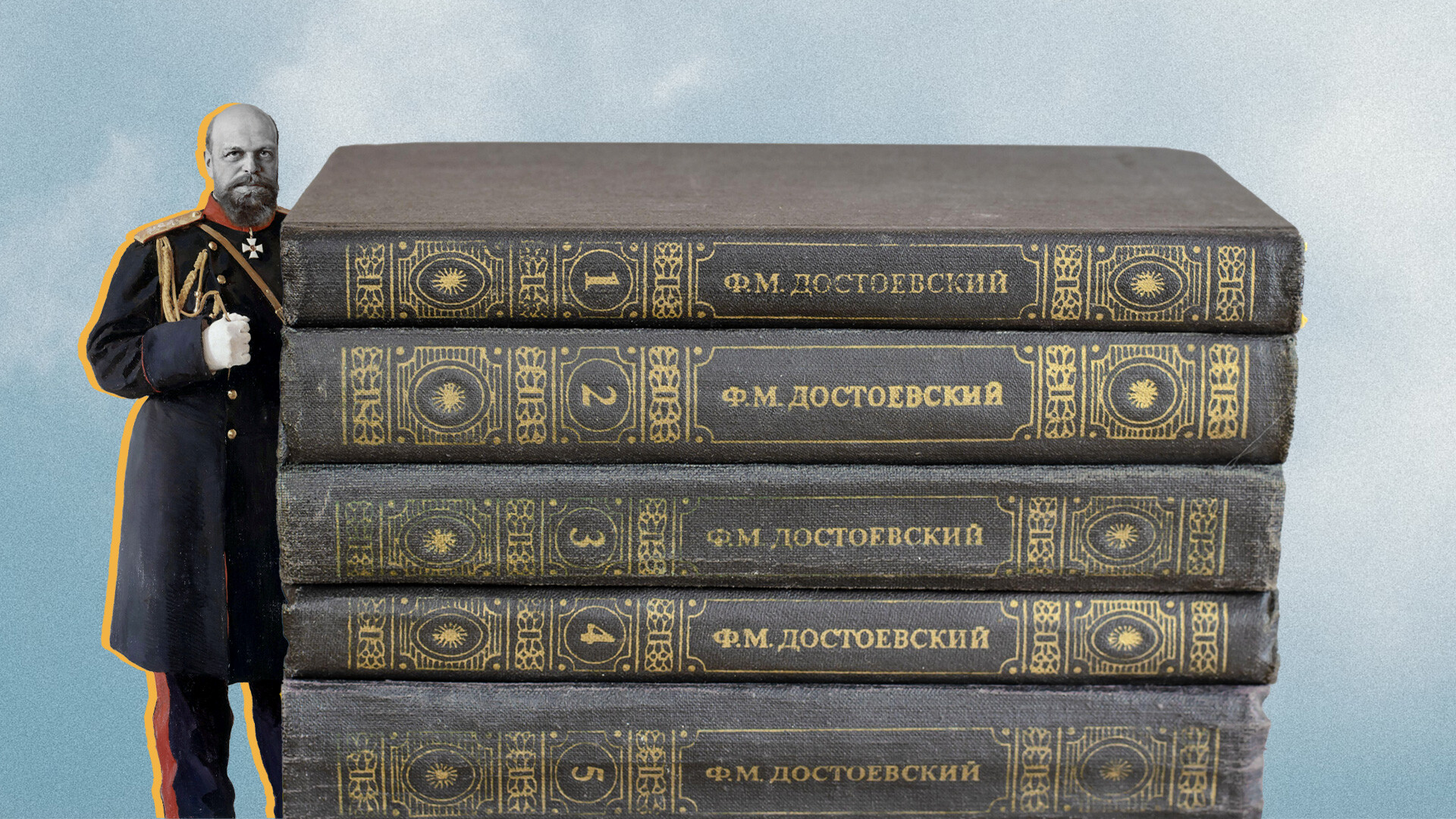
"He was very fond of Russian literature in general. Whatever subject you raised, he would turn out to be informed about it all, he read everything." So said Count Sergei Sheremetev about Alexander III. The Emperor's favorite writer was Fyodor Dostoevsky. Enthusiasm for his work was a family affair: his father, Alexander II, had also been enthralled by the writer, as were his brothers, Grand Dukes Sergei and Paul.
The heir to the throne's encounter with the writer had begun with the novel "Crime and Punishment", which he read along with his spouse, Maria Feodorovna. Learning of their interest in him, Dostoevsky started sending them new works - "The Devils", "The Brothers Karamazov" and "A Writer's Diary". A correspondence grew between them, in which Dostoevsky described the intention behind his novels and emphasized the importance of the Russian Idea. A meeting took place between the two at the Anichkov Palace in St. Petersburg. It was held without formalities - the writer did not adhere to court etiquette and conducted himself in a casual manner. Later, when he learned of Dostoevsky's death, Alexander III showed genuine grief, believing that no-one could fill the gap the writer had left.
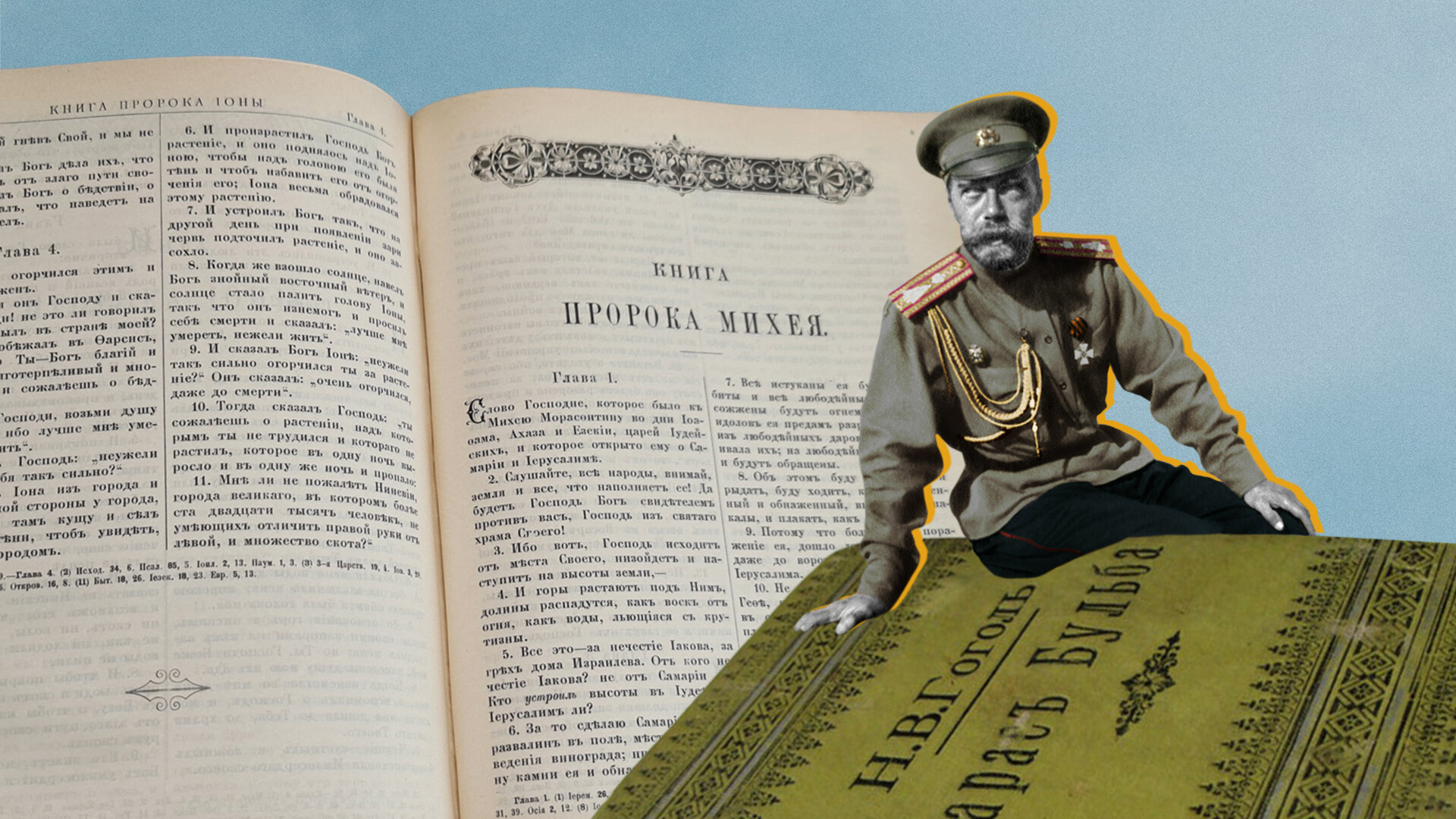
Nicholas II was also an enthusiastic reader. He read a lot and consumed books avidly, as the saying goes. Nicholas had a particular fondness for Gogol. The last Russian Emperor's family would prefer sessions with a book to noisy entertainment. And the Tsar himself frequently read aloud to members of the household, choosing chapters from Ivan Turgenev, Nikolai Leskov and Anton Chekhov. Time was also found for the adventures of Sherlock Holmes, and for the gripping novels of Alexandre Dumas - "The Three Musketeers" and "The Count of Monte Cristo" - as well as Bram Stoker's "Dracula". After the Revolution, Nicholas II immersed himself in the study of Fyodor Uspensky's "History of the Byzantine Empire", and at Yekaterinburg, shortly before his death, the Emperor devoted his time to reading the Bible and the works of Mikhail Saltykov-Shchedrin.
Dear readers,
Our website and social media accounts are under threat of being restricted or banned, due to the current circumstances. So, to keep up with our latest content, simply do the following:
If using any of Russia Beyond's content, partly or in full, always provide an active hyperlink to the original material.
Subscribe
to our newsletter!
Get the week's best stories straight to your inbox